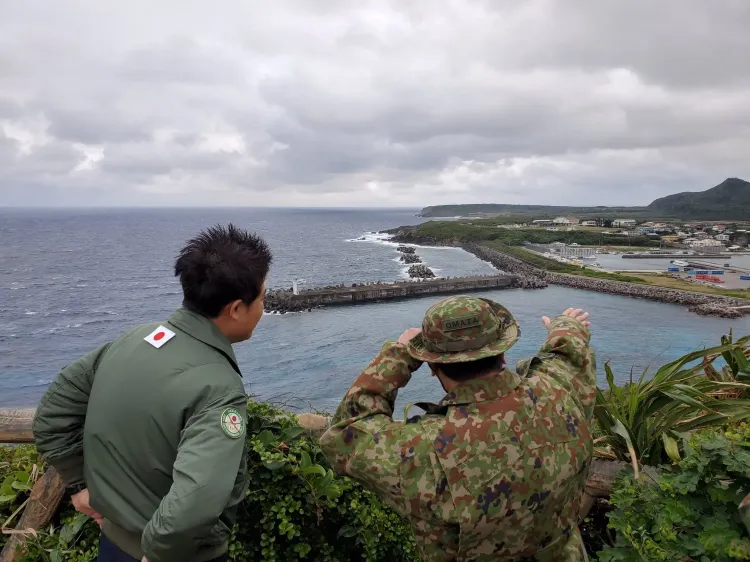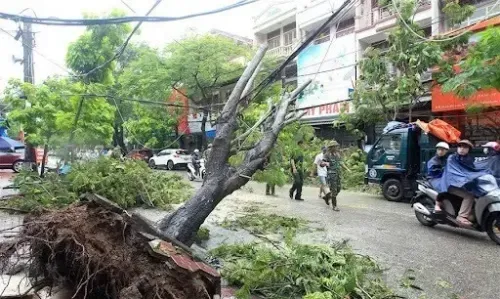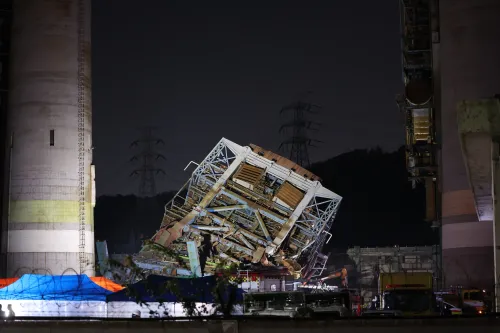Japan Voices Alarm Over Extended Chinese Incursion Near Senkaku Islands

Synopsis
Key Takeaways
- Japan raises alarm over Chinese ships' intrusion.
- Chinese vessels lingered near Senkaku Islands for over 92 hours.
- Foreign Minister Takeshi Iwaya addresses the issue.
- Concerns expressed during ministerial talks with China.
- Dispute over Senkaku Islands involves Japan, China, and Taiwan.
Tokyo, March 25 (NationPress) Japan has expressed significant apprehension regarding the recent and notably prolonged incursion by Chinese Coast Guard vessels in the Tokyo-administered, Beijing-claimed islets situated in the East China Sea.
This marks the longest recorded intrusion into Japan's territorial waters, with Chinese vessels departing on Monday night after a duration of 92 hours and 8 minutes near the contested Senkaku Islands.
The frequency of operations by Chinese vessels in proximity to the Senkaku Islands is evidently on the rise, stated Japanese Foreign Minister Takeshi Iwaya on Monday.
His comments were made as Chinese Coast Guard ships continued their activities within Japan's territorial waters adjacent to the uninhabited islands since the early hours of Friday, according to the prominent Japanese news agency, Kyodo News.
Iwaya also informed a Diet committee session that in his discussion with Chinese Foreign Minister Wang Yi on Saturday in Tokyo, he articulated Japan's concerns surrounding the presence of Chinese vessels.
Meanwhile, a member of the opposition in Japan raised questions regarding this issue during the parliamentary session. The opposition leader remarked that the intrusion of Chinese ships occurring during bilateral foreign ministerial discussions was “highly inappropriate.”
In reply, Iwaya remarked that the meeting unfolded in a “conciliatory and friendly atmosphere,” yet it is “truly regrettable” that the incursion transpired.
“We will address this situation in a determined and composed manner,” added Iwaya.
The contention over the Senkaku Islands among Japan, China, and Taiwan spans several decades. This collection of small, uninhabited islets and rocks in the East China Sea is governed by Japan. It is known as the Senkaku Islands in Japan, the Diaoyu Islands in China, and the Diaoyutai Islands in Taiwan.
The Senkaku Islands hold strategic importance as they are located near vital shipping routes, provide rich fishing areas, and may possess oil reserves. They have also emerged as a battleground in the escalating Sino-U.S. conflict for influence in the Indo-Pacific. Japan remains a principal ally of the U.S.
Japan has consistently asserted that there has never been any accord with China to “shelve” disputes concerning the Senkaku Islands.
“The claim that such an agreement exists is in direct contradiction to China's actions aimed at altering the status quo through force or coercion. In 1992, China enacted the Law on the Territorial Sea and the Contiguous Zone, explicitly outlining its claim on the islands as part of Chinese territory. Since 2008, China has dispatched governmental vessels to the waters near the Senkaku Islands, repeatedly intruding into Japanese territorial waters,” states the Japanese Foreign Ministry.









